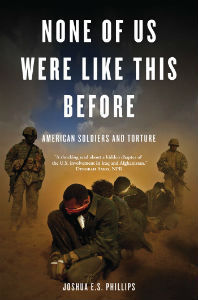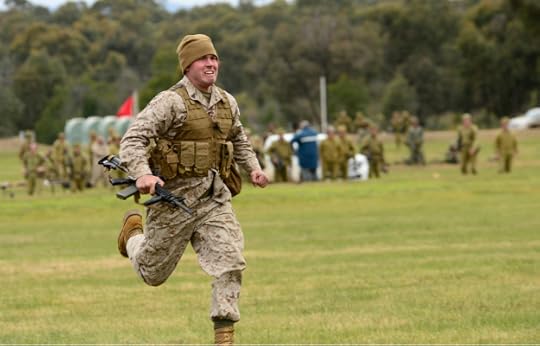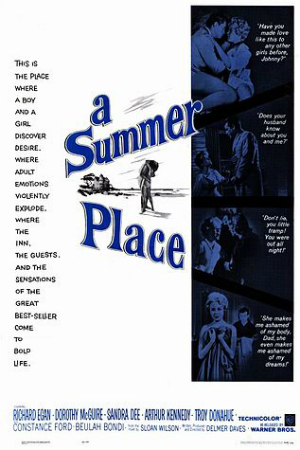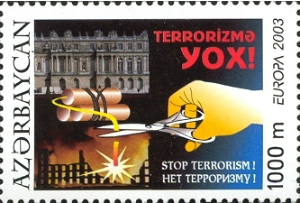Thomas E. Ricks's Blog, page 97
July 9, 2013
Army officer: I think I know why those departing Marine LTs wrote anonymously

During the summer, the Best Defense is in
re-runs. Here are some favorites that ran in late 2012 and in 2013. This item originally
ran on Jan. 7, 2013.
By Lt. Roxanne Bras, US Army
Best Defense office of JO issues
Speaking
authoritatively for a cohort is difficult and dangerous, but what's been said
in the two Marine JO's blog posts resonates with much of
what my peers say daily. That's not to
say that their ideas are correct; perhaps junior officers always feel
marginalized and hostile to the senior officer promotion system. But I'd
argue that the spirit of the posts is accurate, both as perceived by JOs and as
demonstrated by the military's HR system.
But
first, to the anonymity and its ensuing controversy, I'll bet that the Marines
didn't use their real names for precisely the same reason that I hesitated to
write this. Instead of engaging with an idea on its own merits, many
quickly look to the author to discredit him. Detractors love any evidence of
inexperience as an excuse to ignore the substance. The chorus of critics cry,
"He only served like 6 months. Never saw real combat." Or "he's
not infantry/isn't tabbed." Or "he's such a self-promoter and only
wrote that for attention." The ideas are forgotten and what remains is
slander. So why attach your name to something if it will only detract from the
argument? Until the military community becomes more idea and less
individual/ORB/ribbons focused, people will hesitate to participate in open
forums.
As to
the ideas, identifying the top 20 percent of JOs isn't easy. There are late
bloomers, people who are academically talented but are poor leaders, etc. But
just because talent identification is hard, doesn't mean the Army shouldn't
make incremental steps toward improving it
Just
one example: The first experience JO's have with Army promotions systems is
with the Order of Merit List, used to determine branch and first assignment.
The OML weights PT, academics, and military proficiency. It also sends a huge
message: academics is about checking the block. While GPA is weighted as
something like 40% of the OML, there are no adjustments for rigor of
institution or major. A 2.0 at MIT is the same as a 2.0 at any other school.
That only makes sense if the army thinks there is zero correlation between the
standing of the institution, or the relevance of the major to a specific
branch, and a JOs performance. And if that's the case, why care about GPA at
all? Just make the Army an institution that promotes PT and other metrics of
proficiency.
Improvements
don't have to be complicated. Many institutions and businesses identify,
incentivize, and promote talent. How to tailor these existing solutions to the
unique nature of the military? That would
be a conversation worth having.
And
even small improvements in the military's HR system would be significant to JOs
because they're symbolic. Instead of the mantra, "a degree's a
degree," something countless officers have told me, the Army could have the
mantra, "we are a profession and so value education." That doesn't
mean that we are a profession that gives extraordinary weight to eggheads, just
that we acknowledge that education, self-improvement, and rigor are real things
and might eventually impact the way an officer conducts a war.
Seeing
incompetents and careerists advance is frustrating, but is something I imagine
I'd see even if I left the military. But the inevitabilities of bureaucracies
shouldn't excuse the specificities of the military's talent retention
problems.
(For
what it is worth: I am not getting out, am not infantry, do not claim to be a
bad ass or an expert in anything, and am always interested in learning how to
better think about these issues.)
Roxanne
Bras is a 1LT in the U.S. Army, serving at Fort Bragg, NC. She is a graduate of
Harvard College and Oxford University. The views expressed here are her
own and do not necessarily represent those of the U.S. Army, the Department of
Defense, or the U.S. government.
July 8, 2013
We're getting out of the Marines because we wanted to be part of an elite force

During the summer, the Best Defense is in
re-runs. Here are some favorites that ran in late 2012 and in 2013. This item originally
ran on Jan. 4, 2013.
By "yet another Marine LT"
Best Defense department of the JO exodus
Why are
we getting out? It's about the low standards.
We
joined because we wanted to be part of an elite organization dedicated to doing
amazing things in defense of our nation. We wanted to make a contribution to
something great, to be able to look back at a decisive chapter in American
history and say "yeah, I was part of that." We joined the Corps because if we
were going in to the fight, we wanted to serve with the best. We wanted the
kind of job that would make our friends who took soulless, high-paying
corporate jobs feel pangs of jealousy because we went to work every day with a
purpose.
It
causes a deep, bitter pain to acknowledge that I don't think this is the
organization in which I currently serve. The reason we're getting out is
because the Marine Corps imposes a high degree of stress, yet accepts Mission
Failure so long as all the boxes on the list are checked.
I'm
talking about the Field Grade Intelligence Officer in Afghanistan who didn't
know who Mullah Omar was. I'm talking about a senior Staff NCO in the
intelligence community who could not produce a legible paragraph. I'm talking
about a Battalion Commander who took pride in the fact that he had done zero
research on Afghanistan, because it allowed him to approach his deployment with
"an open mind." I'm talking about contractors, some of whom were literally paid
ten-fold the salary of my junior Marines, who were incapable of performing
basic tasks and functionally illiterate. The problem is not so much that these
individuals pop up every now and then, as every organization has its bad eggs,
but rather that we see them passed on through the system, promoted and
rewarded. If we are truly the elite
organization we claim to be, how do we justify the fact that we allow these
individuals to retain positions of immense influence, much less promote through
the ranks? How do we justify this endemic tolerance for mediocrity or
outright incompetence?
If you
really want to know what an institution values, don't look at its mottos or
mission statements. Look at how it spends its resources, especially its human
capital. Economists call this "Revealed Preference." When I was in the midst of a time-critical
project aimed at mapping insurgent networks in Helmand, I was told to put the
project on hiatus so I could organize a visit from General Allen. The implicit
message was that a smooth itinerary and content General were more important
than catching an insurgent cell before they left for Pakistan. How else was I
supposed to interpret this? In my opinion, it's not so much that the Marine
Corps doesn't value ideas, but that -- when the chips are down and careers are
at stake -- it values appearance and conformity more than winning. The implicit
message -- what the Marine Corps reveals by its actions -- is that it's okay to
fail to provide any added value, so long as the PowerPoint slides are free of
typos, no serialized gear is lost, and everyone attends the Sexual Harassment
Prevention training
The
biggest issue is that few are willing to acknowledge Mission Failure because
doing so is considered "unprofessional," especially for a lieutenant. As an
Army Special Forces veteran I worked with was fond of saying, "you get what you
incentivize." As it currently stands, there is an overwhelming incentive for
officers at all levels to simply keep their units looking sharp, turn in rosy,
optimistic assessments, keep off the XO's radar and, above all else, keep from
rocking the boat. No matter what becomes of your battlespace, eventually the
deployment will end and you can go home. Why risk casualties, a tongue lashing
or missed PT time when the reward might not come for years down the road? Why
point out that the emperor has no clothes when everyone one involved is going
to get their Navy Comms and Bronze Stars if we just let him keep on walking
down the road.
We
should be better than this. I have found several of the comments and reviews of
your latest book baffling. We can quibble about the merits of Marshall's
management techniques or the specific metrics by which we should measure
officer performance. But can't we unanimously agree that sub-par commanders
should be weeded out, especially in an organization that calls itself "the
finest fighting force on the face of the earth?" The practice of actively
relieving (and eventually separating) leaders for under-performance is no
panacea, but shouldn't it at least be a starting point?
I don't
want to be misunderstood. The most
extraordinary and talented people I've ever met are still serving in the Corps.
I live in a wonderful area, I'm well-paid and generally like the people I work
with. Given the chance, I would happily deploy again. But looking down the road
at what the billet of a Field Grade officer entails, I have to wonder whether
the sacrifices will be worth it. Maybe they will. I've seen some Field Grade
officers who love their jobs and feel like they're serving a purpose. But I'm
not sure I'm willing to take the gamble.
I was told at The Basic School that the most
important role as a leader is to say, when everyone is tired and ready to
declare victory and just go home, "guys, this isn't good enough, we have to do
better." I simply don't see enough leaders willing to say, regarding the things
that really matter, "guys, the last
eleven years weren't good enough, the nation needs us to do better."
July 3, 2013
'None of Us Were Like This Before': Why hasn’t the U.S. military done a better job of addressing torture by our soldiers?

During the summer, the Best Defense is in
re-runs. Here are some favorites that ran in late 2012 and in 2013. This item originally
ran on January 2, 2013.
That was the question that kept on coming back to me as I
read Joshua Phillips' None of Us Were Like
This Before. It is not a perfect book but it is an
important one.
Yes, there are ethical and moral reasons for conducting a
comprehensive review of instances of torture of Iraqis, Afghans and others by
American soldiers over the last 10 years.
But there also are practical reasons:
1. The damage torture does to those who inflict it. (Two of the
soldiers in the unit Phillips examines killed themselves after coming home.)
2. The damage torture does to our war efforts-both in the host
populations, and in world opinion.
3. The effect on the current force.
The questions I would like to see addressed include:
--Who tortured?
--Why?
--Who stopped torture?
--What were the characteristics of units that indulged in
torture? And of those that didn't?
--How can we better train soldiers to deal with this?
--Are there continuing effects on the force that need to be
addressed?
One final note: Phillips writes that, "I rarely met a
detainee who had received an apology, or any acknowledgement at all, for the
harsh treatment he had endured during U.S. captivity."
July 2, 2013
A Marine officer: I'm leaving the Corps because it doesn't much value ideas

During the summer, the Best Defense is in
re-runs. Here are some favorites that ran in late 2012 and in 2013. This item originally
ran on December 14, 2012.
By Anonymous
Best Defense department of junior
officer retention
I'm
an infantry officer in the Marine Corps. I deployed last year to Helmand
Province on an embedded training team with the Afghan National Army. It was an
incredible experience, and I'm proud of what we accomplished together, but now
I'm in my last month of active duty and I'll be getting out as a first
lieutenant. I decided to leave the Marines a few months ago. (I was career
designated, which I say not to brag, but so you don't think I'm some
disgruntled jarhead.)
I've been closely following the discussion that you kicked off with your book,
your piece
in The Atlantic, and on Best
Defense. I want to weigh in on one point about which I feel strongly -- it
is that firing certain generals will send a message to junior officers about the
value of adaptability and critical thinking. I don't know that it will, but you
are absolutely correct that such a message is necessary.
The conclusions you fear people may draw regarding Petraeus's departure -- "critical
thinking and ideas are overrated" -- were
particularly poignant. I know you're talking Army. Sadly, it applies to the
Marine Corps, too.
An example: As the wars draw to a close, the Marine Corps is preaching a return
to its roots. This is all well and good. But it seems as if everyone is holding
up the 1990s as an idyllic time in the Marine Corps's history, as if the past
decade with all of its lessons and changes was an aberration. My fear is we
will learn very little from it.
In my battalion's after action report from the deployment, there are more than
fifty topics discussed. Just three of them relate to partnering, the main
effort in Helmand and our primary mission. The rest are tactical prescriptions
with a few operational suggestions thrown in -- not the sort of analysis you
want from a battalion staff.
If you've read Rajiv
Chandrasekaran's new book, you know how General Larry Nicholson is
portrayed. He isn't perfect, but he at least "gets it." My
impression, having endured dozens of empty speeches from generals these past
few years, is that men like him are few and far between. What concerns me much
more, though, is that among my peers, the ones with ideas are the ones getting
out, because they just don't feel the organization values them.
During the summer of 2011, the
author served in Helmand Province as a Tolai Advisor to the
Afghan National Army's 215th Corps. The views presented here are his
own.
July 1, 2013
What a good senior NCO does: Move around, keep an ear open, turn over rocks

During the summer, the Best Defense is carrying
re-runs of good items that ran in late 2012 and in 2013. This one originally ran
on 6 December 2012.
One
of the things a good senior leader does is move around his or her unit. Don't
wait for bad news to come to you. Often, it won't be allowed to.
The
new issue of Army Times has a good
piece by Michelle Tan about a predatory drill sergeant who in one
10 day period earlier this year had various forms of sex with one female
recruit, oral sex with another, a groping and kissing session with a third, and
indecent language with some others.
The
first
woman to complain was a 20-year-old victim who found the
chain of command unresponsive. She went to one drill sergeant, who told her,
"You don't want to open that can of worms, Private. . . . That's my battle
buddy's career you're trying to fuck up." Her first sergeant didn't believe
her. The company commander said he would launch an inquiry, which, she said, led
nowhere, and wasn't reported to superiors. The woman said that other trainees
who had been assaulted were afraid to come forward, especially after they saw
how the drill sergeants ganged up on her and accused her of lacking integrity.
Then
she ran into the battalion command sergeant major as he was moving around the
unit. He listened to her, then called a meeting of all the females in the
company. It lasted about 90 minutes. "That's when the others came forward," the
woman said.
The
abusive drill sergeant, Luis Corral, has been found guilty. He was busted to
private, sentenced to five years in the brig, and will get a bad conduct
discharge when he gets out. Then he must register as a sex offender.
C U in September

As of today, Best
Defense is going into summer re-runs. I
may surface occasionally with news or guest columns that just can't wait for "when the summer's through."
Is terrorism getting boring? (II)

My friend, retired
Army Col. Bob Killebrew, in response to my question (above) of the other day, writes:
The answer is, it is
as 'terrorism' per se, but it's not
when you consider what it's becoming. Terrorism is becoming part, perhaps the
major part, of a mix of terrorism, crime and illicit states that will challenge the rule of law and
international order in the 21st century.
June 28, 2013
Did the regimental system optimize the British army for small wars? And what does that all mean for today's U.S. Army?

Those, little grasshoppers, are the two
questions that occurred to me as I read Max Hastings's comment (in Winston's War) that during World War II, "German,
American and Russian professional soldiers thought in divisions; the British
always thought of the regiment, the cherished ‘military family.' Until the end
of the war, the dead hand of centralized, top-down command methods, together
with lack of a fighting doctrine common to the entire army, hampered operations
in the field."
This was, Hastings goes on to write, one
reason that the Germans were better at everything from combined arms attacks to
mundane but essential tasks such as recovering disabled tanks and trucks from
the battlefield.
Yet that same small, cohesive structure
might have been good for fighting small wars, with units able to carry on
quietly for years without getting much attention, getting to know one area
well.
So: What, if anything, does this
suggest for how the U.S. Army should be organized for the future? (Or should the small war mission be sent back to the Marines?)
Fix the U.S. government by networking

By Julia L. Stern
Best Defense guest
columnist
People say government is broken, that no matter how many interagency
working groups or strategy documents are produced, the stovepipes that have
been long-entrenched among government offices will inevitably remain.
As an idealistic 20-something at the outset of my career in Washington,
I of course believed that my peers and I would break down the walls of
bureaucracy and effect change from the inside out. And while there was certainly
momentum to integrate efforts across agencies, particularly within the
intelligence community in the wake of 9/11, I now understand the reality of
implementing information sharing and integration ideas to be more nuanced than
adhering to the mandates of the 9/11 Commission Report. And while the
millennial generation -- increasingly populating the workforce -- is
characterized as über-connected networkers knowing no barriers, communication
and info sharing at all levels occurs based on personal relationships and is ad
hoc at best.
Retired general Stanley McChrystal recently sent me an e-mail sharing
his thoughts on the issue, from the perspective of a leader well-versed in
innovative organization:
The speed and complexity of how we operate now means that we need to be
able to operate across organizational lines earlier in careers, and at more
junior levels. That means you can't afford to have people toiling within their
respective ‘guilds' developing journeyman-like technical proficiency -- yet
largely not needing to understand or comfortably work across organizational
lines. Senior people had that responsibility.
Second, we've found that during the years of isolated service building
internally focused skills and experience, individuals tend to internalize
strong organizational cultures that encourage, reward, and sometimes even
prevent, working effectively with other agencies or organizations.
While institutional change takes a long time to stick, there are three
key steps we can take as a government to foster greater collaboration both at
the individual and at the institutional level:
1. Develop a U.S. government-wide interagency
academy.
Just as each of the military services has its own academy to train and
prepare future officers in the operating forces, there should be a comparable
opportunity for junior U.S. government personnel -- both military and civilian
-- to level the playing field of knowledge across all agencies and job
functions at the outset of their careers.
A program to teach young action officers about their counterparts across
Defense, State, USAID, Treasury, Congress, Justice, the intelligence community,
and law enforcement elements would raise awareness of capabilities and
authorities outside our own agencies, and of the value inherent in
collaborating with partners. Additionally, the curriculum should follow a
standardized USG planning process (and accompanying vocabulary) that can
actually be understood and implemented across agencies. Participants would end
up with the same understanding and interpretation of USG policy in the
classroom, and therefore be much better equipped to work together once on the
ground, whether in Washington or downrange in a combat zone.
2. Make available more interagency rotations
for junior personnel.
Given the integrated nature of future security operations, Defense
officials have acknowledged the need to increase engagement with other services
and civilian agencies such as the Department of State and USAID -- both from a
high-level policy planning perspective in Washington, as well as on the ground
within country teams and joint organizations.
A prime example of institutional efforts toward integration can be taken
from the Marine Corps's Junior Officer Strategic Intelligence Program. Junior
level officers are immersed in the work and culture of an intelligence agency
office, creating lasting professional connections and exposing them to data and
tools that they would have otherwise not known to exist -- resources that these
officers will take back with them to the Marine Corps. Similarly, the presence
of Marine officers in these civilian agencies serves as a constant reminder to
policymakers and policy informers of Marines in the field and how these
policies impact troops. Beyond the Marine Corps, the Department of Defense and
intelligence community offer similar joint duty and educational opportunities
for military and civilian personnel to gain exposure outside of their home
agency.
These types of cross-sector experiences are crucial as we face a set of
interconnected, complex global challenges that will require innovative
approaches and resources to address. The key is making these opportunities
known to personnel across military and civilian agencies early enough in their
careers, so that they can leverage the training, education, and other
prerequisites necessary to pursue the joint, interagency experiences that will
broaden their skills and strategic perspectives. The existing Presidential
Management Fellows program -- the mission of which is to foster a cadre of
future government leaders -- exemplifies this opportunity by exposing fellows
to several interagency rotations over two years. This model should be embraced
across government.
3. Ensure implementation of interagency
experiences throughout one's career, and tie
promotion and professional incentives to interagency rotations.
Experience from interagency rotations and exposure to counterparts at a U.S.
government academy, no matter how productive at the time, will be far less
worthwhile for the individuals and institutions involved if not directly
implemented throughout the participant's career.
It is often simply easier not
to reach out to another office and get another opinion on the issue at hand,
particularly when a deadline is fast approaching. This is human nature. There
must be a mechanism to ensure accountability at the institutional level.
Further, senior leaders across agencies and services must equally endorse
promotion of personnel with interagency experience, acknowledging not only the
value but the necessity of these experiences to bolster the future of the USG
workforce. Individual institutions have much to gain -- a better informed workforce
and the ability to influence partners -- from a program of earnest engagement
with the interagency, particularly if the resulting relationships and exchange
of best practices are infused back into U.S. government channels.
Since this legion of young professionals will inevitably assume the
ranks and decision-making responsibility of U.S. policymakers, we must start
the process of earnest collaboration now. This is not to say by any means that
GenY/millennials' networking instincts are right and our predecessors are
wrong. It all comes down to the individuals involved, and turf wars and
hoarding of information certainly exist throughout the ranks. We are not
necessarily more curious about our peers' perspectives than are our
supervisors, nor are we adequately incentivized to seek out counterparts on a
more-than-ad-hoc basis. But the technological and intellectual foundations of
borderless communication have been laid -- those entering the workforce in 2013
have never known a world where instantaneous virtual contact is not the norm --
and in a world where geographic and sectoral lines are increasingly blurring,
it has never been more critical (or possible) to actually embrace our networks.
Ultimately, institutions have to become networked and not just the
people inside them. However, by developing robust training, education, and
exchange opportunities for junior personnel -- and ensuring these experiences
are strategically managed throughout their careers -- the next generation of
our government will naturally mirror its people.
Julia
L. Stern is a senior consultant with Booz Allen
Hamilton, where she has worked on Afghanistan, national
security, and intelligence issues for the Department of Defense, as well as
security cooperation policy for the Marine Corps. She plans to pursue a master's
degree in public policy at the Kennedy School this autumn.
Gellman vs. Lewis on leaks vs. security

By Tsion Hiletework
Best Defense guest reporter
What was
most striking about a discussion of government surveillance programs at CSIS on
Tuesday was the width of the gap between cyber-experts focusing on national
security and journalists focusing on constitutional rights.
Bart
Gellman of the Washington
Post called for more media scrutiny of the "so-called spy programs." James Lewis, a CSIS cybersecurity expert, responded, rather
dismissively, "There aren't enough people in analysis to make investigating
your private sex life priority number one."
On the
other hand, Lewis recognized the need for more transparency, while Gellman
conceded that publicly admitting to PRISM is difficult for the
government because its contents often contain private databases and warrant-based
information.
What to
take away? Well, even with the questionable intent and conduct of what Lewis
called the "NSA's free backup service," Gellman also noted that the
program has been treated as constitutional by the three branches of the federal
government. In other words, the line between terrorism protection and individual intrusion remains hazy.
Gellman
and Lewis may have contrasting opinions, but despite their differing points of
origin, they sat down at the table to talk directly. Whether the government
will be as direct in discussing its clandestine
programs seems unlikely.
Thomas E. Ricks's Blog
- Thomas E. Ricks's profile
- 437 followers



